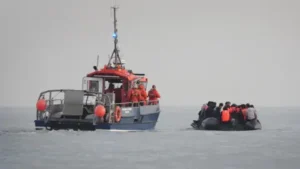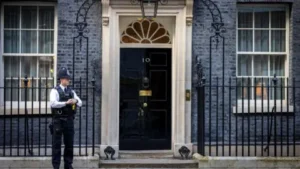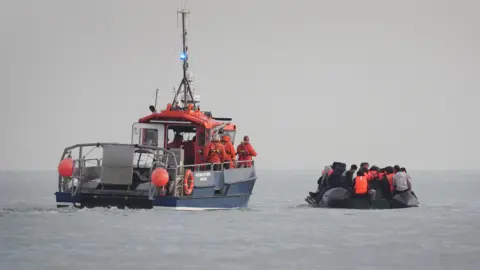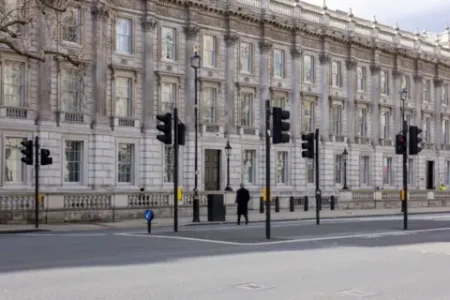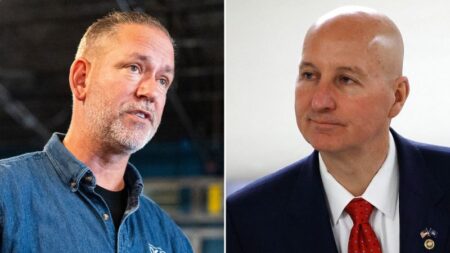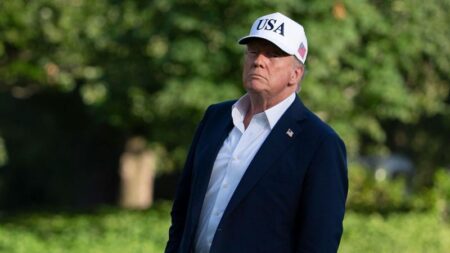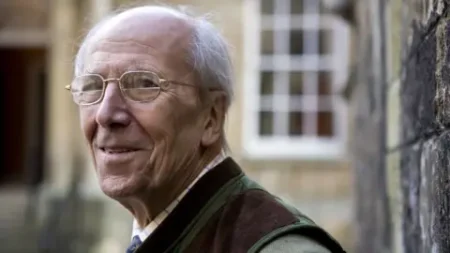In a recent briefing from Downing Street, it was revealed that the government expects to make significant strides in addressing the issue of small boats crossing the English Channel during French President Emmanuel Macron’s state visit to Britain. This issue has gained prominence and continues to be a crucial point of discussion between the two nations. On a particularly noteworthy note, the government announced that new powers, which would allow French police to take action against boats before they reach international waters, are anticipated to be operationalized in the near future.
The spokesperson for the Prime Minister indicated that months of negotiations between Prime Minister Sir Keir Starmer and President Macron were yielding positive results, although he refrained from confirming whether a “one in, one out” migrant return deal would be finalized during the president’s visit. This proposed arrangement would allow the UK to return migrants arriving by small boats back to France, and in return, France would accept asylum seekers who have family connections in the UK. This scheme aims to dissuade potential migrants from attempting perilous crossings, underlining the message that they risk being sent back to France.
The discussions also touched upon the effectiveness of such an agreement, emphasizing that for it to serve as a deterrent, it would need to involve a substantial number of exchanges. Achieving a deal of this nature would represent a significant breakthrough, indicating a willingness from France to accept back migrants who have crossed over. However, optimism surrounding a deal being struck this week comes with caution. Downing Street is currently engaged in separate talks with the European Commission to address concerns raised by five Mediterranean countries that fear they may be compelled to accept deported individuals from the UK.
Moreover, there are expectations from the UK side for France to revise its operational guidelines to empower police to intervene in situations where boats are still in shallow waters, rather than being restricted to land. Recently, BBC observers reported that French officers altered their tactics, using knives to puncture inflatable boats shortly after launch, raising questions about their new enforcement strategies.
The spokesperson further noted that the French government is now looking to implement essential new tactics to prevent boat launches—a move lauded by Downing Street as a significant operational and legal advancement. The collaboration between the two nations has become increasingly important, with the UK having committed over £700 million since 2018 to assist France in enhancing coastal patrols and surveillance capabilities.
The Labour government, which took office in July last year, has already initiated a series of measures aimed at combatting people-smuggling. These include introducing a new criminal offense to penalize those who endanger lives at sea and legislating to utilize counter-terrorism tools against people smuggling operations. These measures indicate a robust response to the current challenges posed by illegal crossings.
As alarming statistics reveal, 2025 has seen a rise in small boat arrivals, setting an unwanted record for the first half of the year with almost 20,000 individuals making the crossing—a substantial 48% increase compared to the previous year. The UK government has consistently urged France to bolster its patrol presence along its northern coast in an effort to curb this influx.
In response to inquiries regarding potential refunds for financial support offered to France, a Downing Street representative defended the government’s strategies, highlighting that they have secured a significant enhancement in French law enforcement’s operational capabilities.
Overall, the negotiations and discussions surrounding the small boats crossing the English Channel during President Macron’s visit illustrate a complex web of international relations, humanitarian concerns, and logistical challenges. Both governments are clearly seeking collaborative strategies to address the pressing issue of migration across the Channel, which has become a key aspect of their bilateral dialogue.

